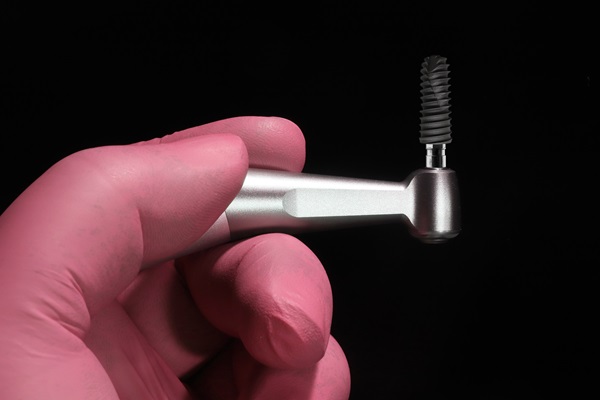6 Tips for Dental Implant Surgery Recovery

As with any oral surgery, dental implant surgery requires a period of healing. If you are considering dental implants, you should know that the procedure has a recovery time that is affected by a number of factors.
Tips for quick recovery
Following the instructions of your dentist and oral surgeon strictly will have you healed quicker and more effectively. Read on to discover our 6 tips for recovering after dental implant surgery.
Know that recovery time can vary
Each patient is unique, and each case of dental implant surgery will have a different recovery time. The factors that affect recovery time include the number of extractions, the occurrence of multiple implants and the health of the jawbone. When a jawbone does not have enough density, bone grafting (an additional procedure) might be necessary before implant surgery.
Eat soft foods
Soft, nutritious foods that are easily cut with a fork are essential immediately following surgery. Although most patients transition back to their normal diet after a period of weeks, continuing to eat soft foods is not going to hurt. Try to still avoid chewy, sticky foods as these are a bit more difficult to process for the temporary crown in the healing period.
For difficult procedures of one or more dental implant surgeries, try to eat soft foods for up to six weeks.
Avoid these habits
Certain bad habits can threaten the success of your implant, or at the very least cause you pain.
Nail biting
You will want to avoid biting your nails for the same reason that you want to eat soft foods. Hard objects can damage enamel and add unnecessary pressure on the new implant. Biting nails can be especially damaging if the implant has replaced one of the front teeth.
Crunching on ice
Chewing on ice is never a good idea, new implant or not. The combination of extreme cold and hardness of ice is a perfect storm for a cracked tooth. Chewing on ice can also irritate the newly placed implant and cause irritation.
Smoking
Dental implant surgery is a perfect excuse to stop smoking for good. However, the oral surgeon will usually only recommend that you stop smoking for at least a week post-surgery.
No alcohol
Alcohol should be avoided at least one month after surgery. Alcohol can have interactions with medications prescribed by your oral surgeon. Additionally, alcohol dries out the mouth and hinders the natural ability of the mouth to heal. Alcohol will irritate the surgical area as well.
Keep up the oral hygiene routine
Continue to brush and floss your teeth post-surgery. Rinsing the mouth with a mild oral rinse, or even with warm salt water can help to cleanse the new implant. Always brush with a soft-bristled toothbrush, and try to brush gently. Vigorous brushing can irritate your new implants and lengthen healing time.
Do not drink with a straw
As the area starts to heal, tissue and blood begin to rush toward the area to seal up the open wound. This tissue is not very secure, and it can be struck loose by any sort of pressure. Sucking on a straw creates a suction that pulls the tissue from the wound, causing the healing process to start over.
Contact us today if you have more questions, we are here to help!
Request an appointment here: https://lavernedentalimplant.com or call La Verne Dental & Implant Center at (909) 575-1034 for an appointment in our La Verne office.
Check out what others are saying about our dental services on Yelp: Dental Implant Surgery in La Verne, CA.
Related Posts
As part of your six-month dental checkup, your dentist will look for a variety of current or potential issues. To do that, the dental professional looks at new X-rays and performs an oral examination. If the dentist spots something, perhaps a cavity, they will fill it on the spot. If you have never had a…
Eating with Invisalign ® aligners will be slightly different from your usual routine, but it is entirely manageable with minor adjustments. We often receive questions about eating with Invisalign, so we have answered the most common ones in this review to help you navigate this aspect of your orthodontic treatment. Understanding what patients can and…
While some fear around dental procedures is natural, dental anxiety can prevent even the most basic routine dental visits and cleanings. Fortunately, sedation dentistry provides a calming solution that allows you to feel relaxed and comfortable during dental treatment. By addressing fear and stress in the dental chair, dentists who use sedation techniques can help…
Invisalign® is an increasingly popular alternative to traditional metal braces. Many are attracted to its benefits, such as the ability to align their teeth discreetly, comfortable wear, quick treatment times, and the ability to remove the appliance. However, before you settle on this treatment, we need to ensure you are approved for this type of…
